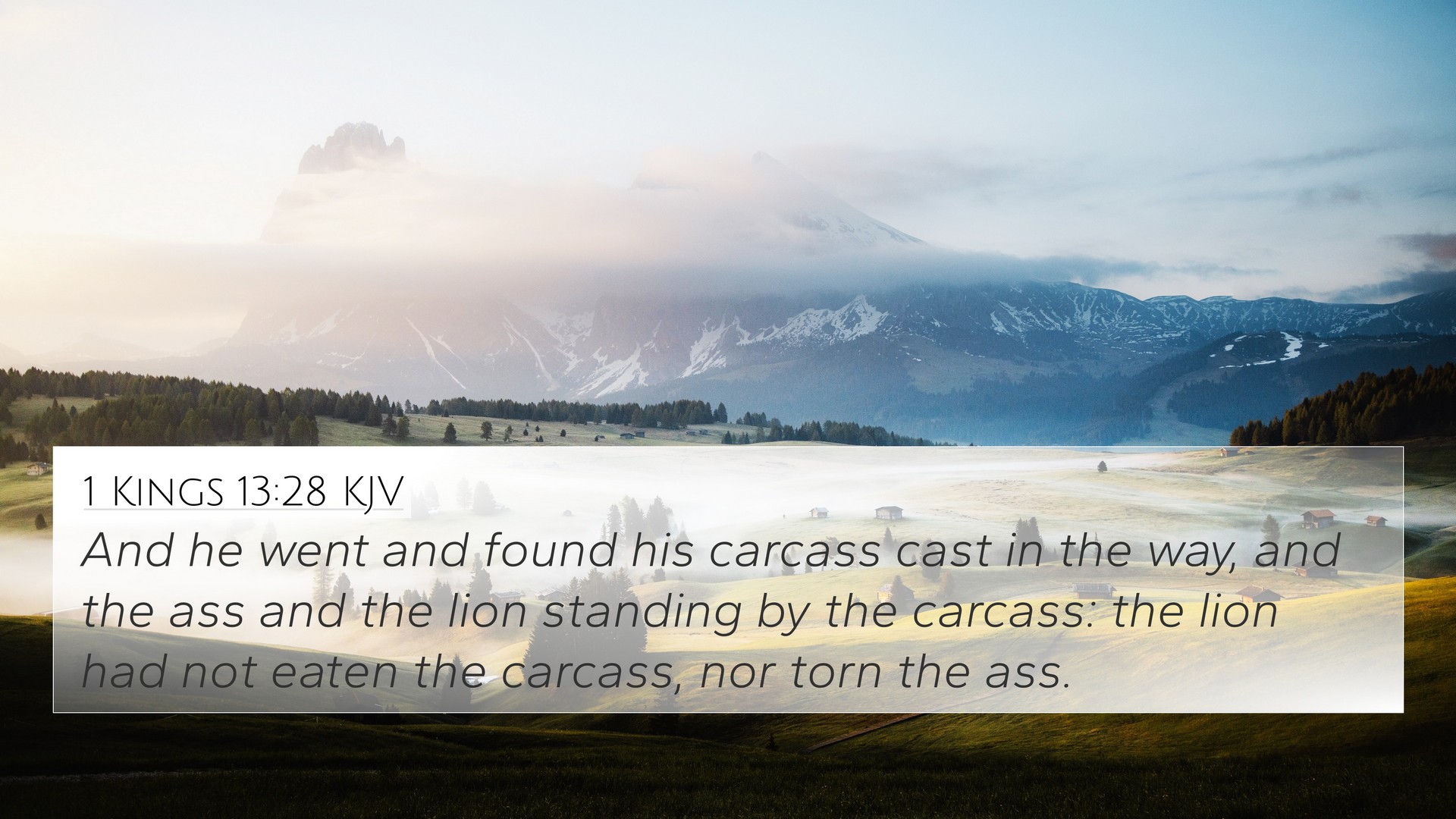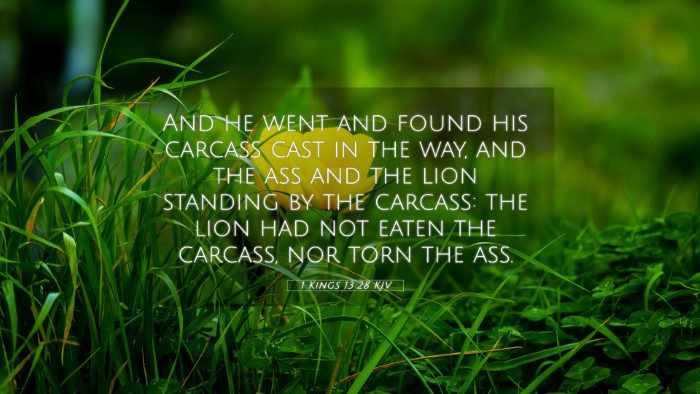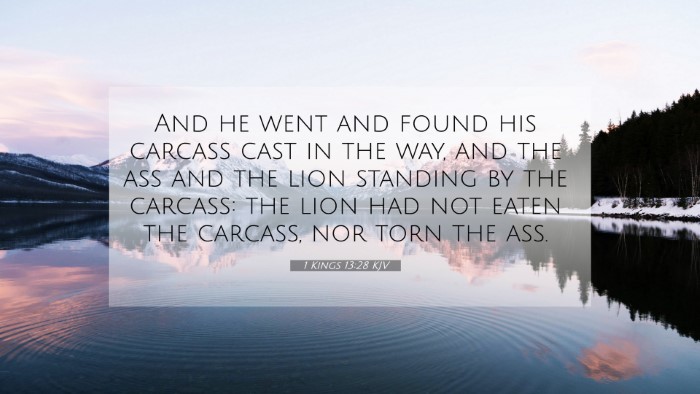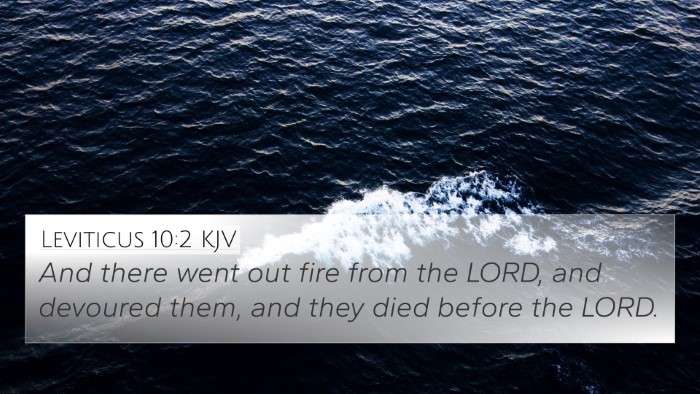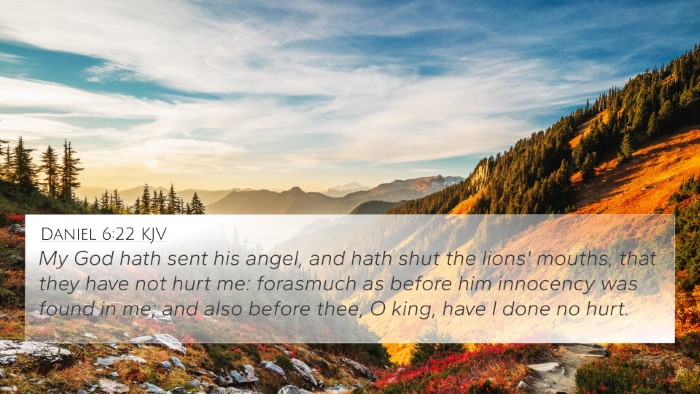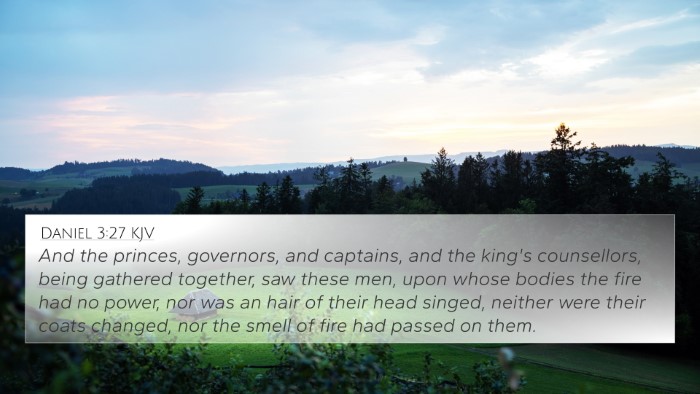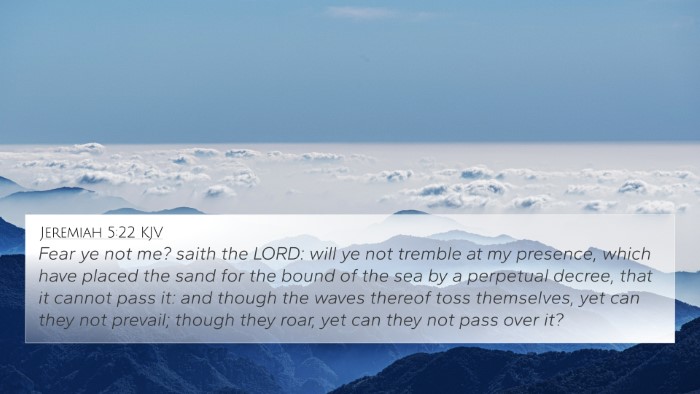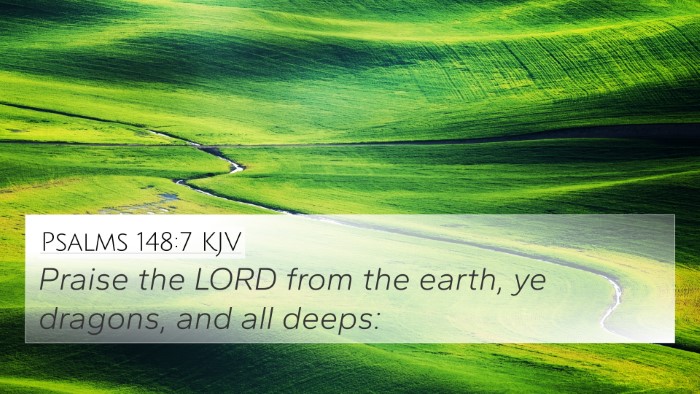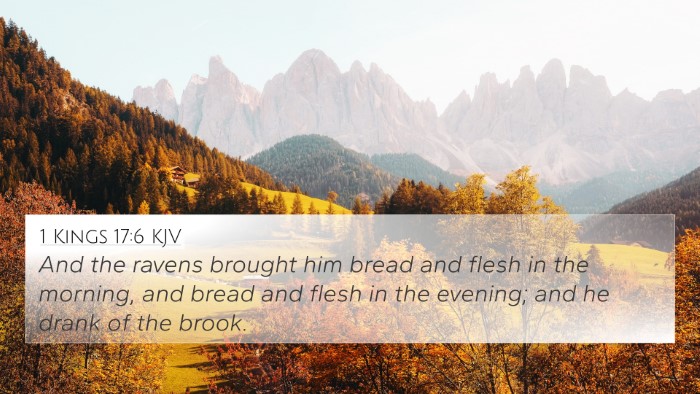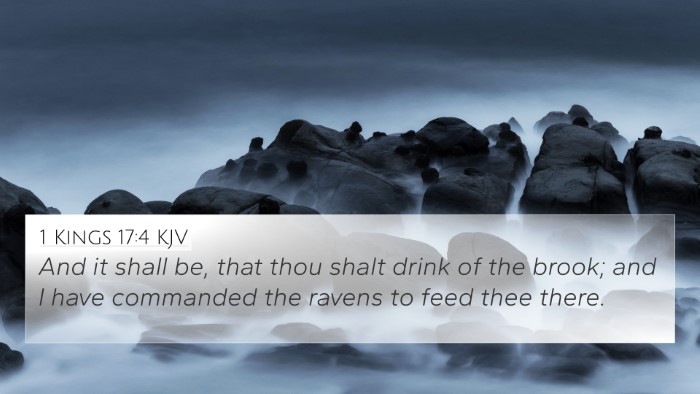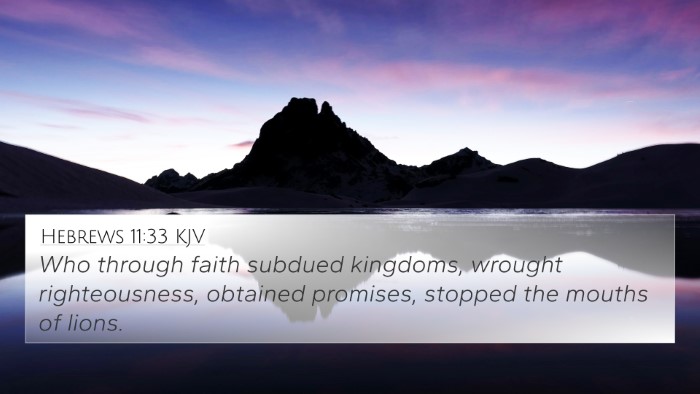Bible Verse Meaning: 1 Kings 13:28
Verse Reference: 1 Kings 13:28
The passage in 1 Kings 13:28 is a part of a narrative that discusses the consequences of obedience and disobedience to God's commands. This verse reads:
"And he went and found his carcase cast in the way, and the ass and the lion standing by the carcase: the lion had not eaten the carcase, nor torn the ass." (1 Kings 13:28, KJV)
This verse follows an extraordinary event where a man of God disobeyed God's command and suffered dire consequences. The symbolism of the lion and the ass emphasizes the seriousness of God's word and judgment.
Summarized Meanings from Public Domain Commentaries
Highlights from Matthew Henry's Commentary
Matthew Henry notes the significance of the lion as a symbol of divine judgment. The lion did not harm the ass or consume the body of the prophet, representing a strong message about the consequences of not adhering to God's commands. It reflects God's power in controlling nature and the importance of obedience.
Insights from Albert Barnes' Commentary
Albert Barnes emphasizes that the unusual occurrence of both the lion and the ass remaining unharmed illustrates a divine sign, intended to confirm that the prophet's death came as a result of his disobedience. The lion's presence signifies God’s protection over the prophet's body and serves as a warning to others about the seriousness of God’s commands.
Adam Clarke's Analysis
Adam Clarke interprets this verse as a stark reminder of the repercussions of disobeying God. He remarks on the fact that the animal, typically seen as lower in dignity, experiences no harm, while the prophet encounters judgment. Clarke notes that the scene underscores the weightiness of prophetic words and the dire need for adherence to divine instructions.
Key Themes and Spiritual Lessons
- Obedience to Divine Instruction: The passage highlights the critical need for believers to heed God’s directions and warnings, illustrating the consequences of negligence.
- The Nature of Divine Judgment: The scene with the lion serves as a reminder of God’s control over all creation and His ability to enact judgment without contradiction.
- Symbolism of Animals: The juxtaposition of the lion and the ass serves to represent strength versus submission, and the principles of divine authority over all beings.
- The Importance of Prophetic Accountability: The prophet's fate raises questions about the responsibilities associated with prophetic callings, urging caution among those who speak on behalf of God.
Cross References to Consider
- 1 Kings 13:1-24 - The full account of the man of God and his interaction with Jeroboam.
- Jeremiah 23:32 - Woe to false prophets who lead God’s people astray.
- Matthew 7:21-23 - In the New Testament, Jesus warns about merely professing faith without obedience.
- Proverbs 14:12 - There is a way that seems right to a man, but its end is the way of death.
- Galatians 6:7 - A reminder that God is not mocked; whatever a man sows, he will also reap.
- Hebrews 10:31 - It is a fearful thing to fall into the hands of the living God.
- Proverbs 19:16 - He who keeps the commandment keeps his soul, but he who is careless of his ways will die.
Conclusion
The lesson from 1 Kings 13:28 is profound and multifaceted, urging believers to recognize the weight of God's commands and the grave implications of disobedience. The insights provided by classical commentaries reinforce the principles of divine judgment and the vital importance of adhering closely to God's word.
